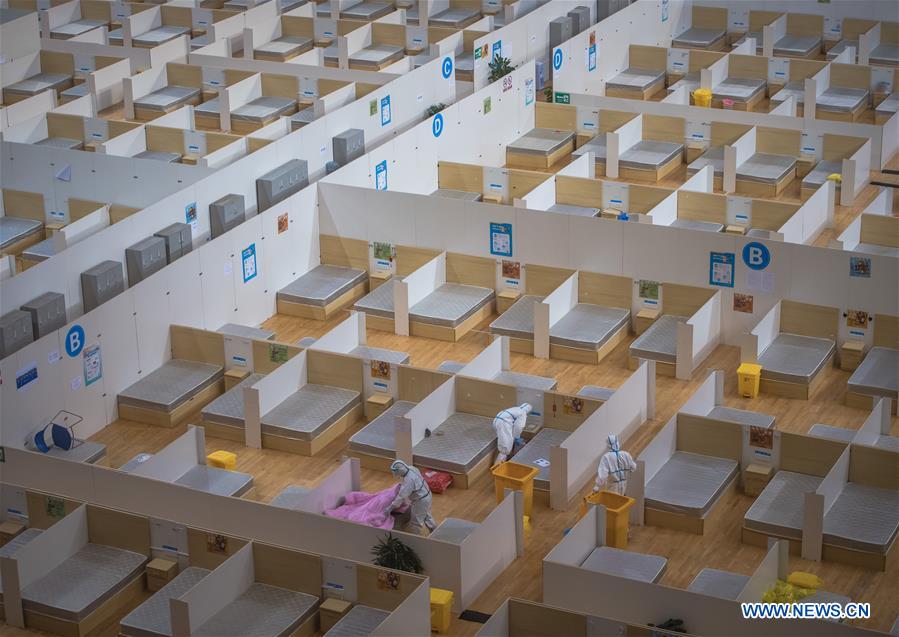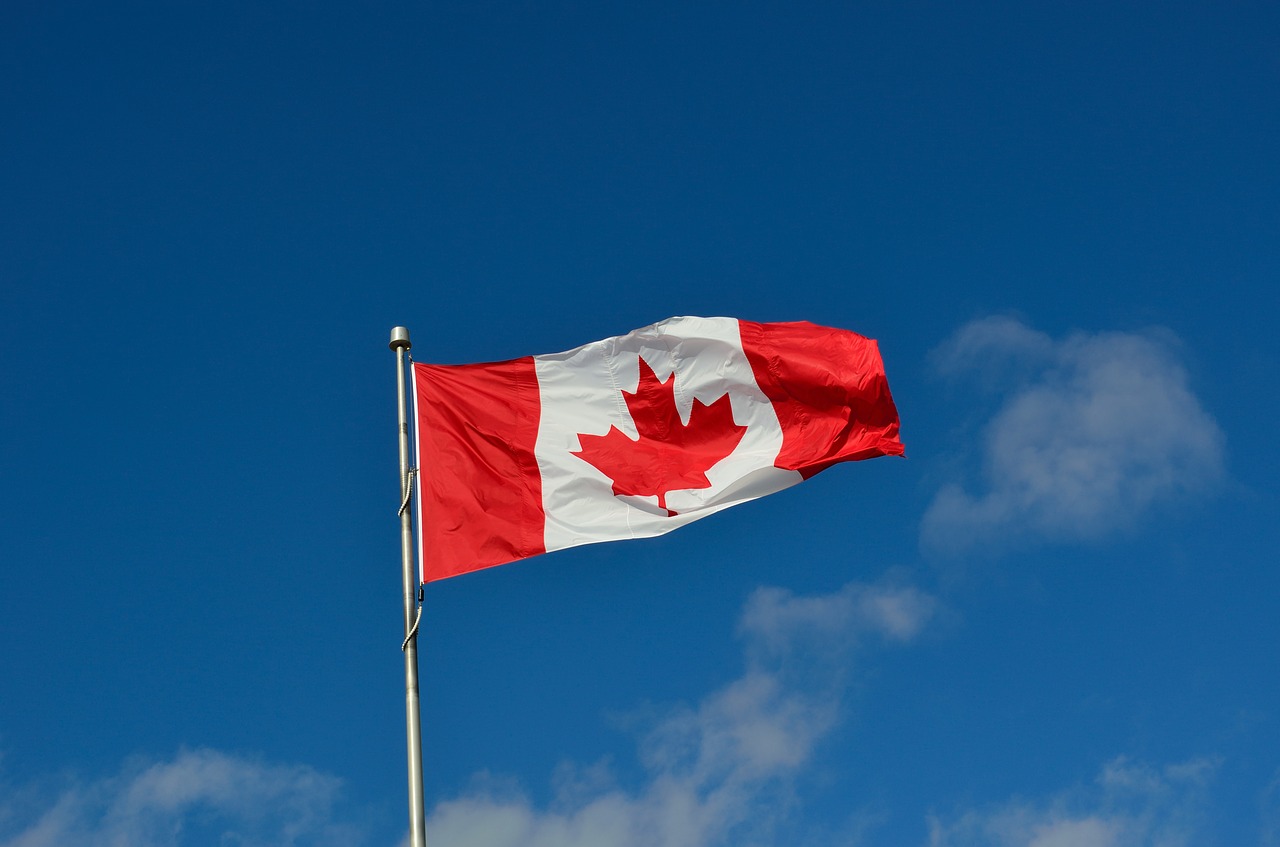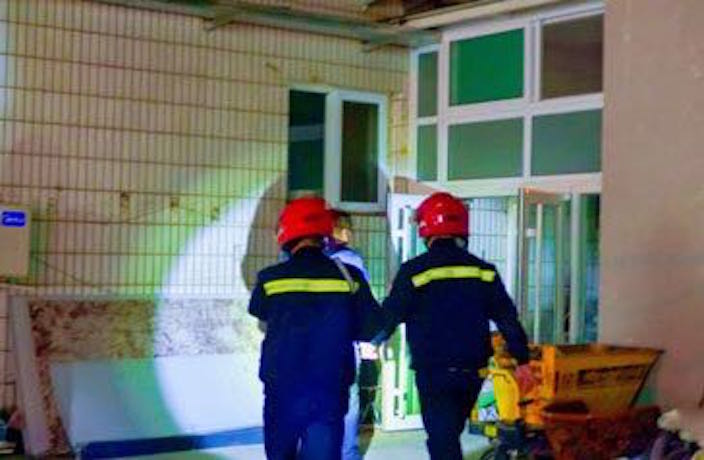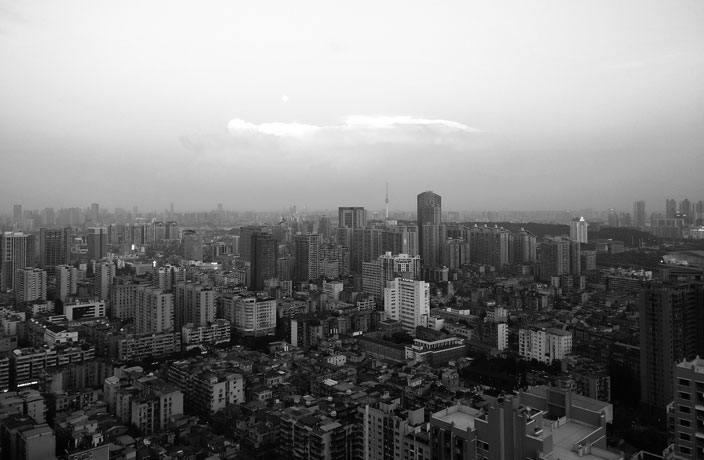The novel coronavirus first came to the attention of the World Health Organization on December 31, 2019, after a number of suspected pneumonia cases were reported in Wuhan, the capital of Hubei province. One week later, the mystery illness was confirmed to be a new strain of coronavirus, the same family of diseases as severe accute respiratory syndrome (SARS) and Middle East respiratory syndrome (MERS).
Wuhan, a city of over 10 million people, went into lockdown on January 23, in order to curb the spread of the virus. It was also announced that the Chinese New Year holiday will be extended in order to contain the spread of the respiratory disease.
The death toll from the coronavirus has exceeded 6,600, with nearly 170,000 confirmed cases reported worldwide.
See below for our updated coverage on the novel coronavirus disease (COVID-19):
UPDATE (March 16, 2020 7.40pm CST): On Monday, March 16, COVID-19-related deaths outside of China surpassed the death toll within the country. Click here to learn more.
UPDATE (March 11, 2020 6.20pm CST): On Tuesday afternoon, the last 49 patients exited Wuhan’s Wuchang temporary hospital, marking the closure of all 16 makeshift hospitals formed in Hubei’s capital city during the coronavirus outbreak.
UPDATE (March 9, 2020 2.12pm CST): The National Health Commission reported only 40 new confirmed coronavirus cases on Sunday – the lowest number of cases since the health commission began publishing nationwide data on January 20. Outside of Hubei province, there were zero locally transmitted cases for the second consecutive day, with 36 new infections in Hubei’s capital city Wuhan and four cases in Gansu, which were imported from Iran.
UPDATE (March 2, 2020 8.00am CST): Thailand, Australia and the US have reported the first coronavirus death in the countries, as COVID-19 continues to spread. In Thailand, the director general of the country’s Department of Disease Control confirmed that the patient, a 35-year-old man, had also suffered from dengue fever, South China Morning Post reports. A 79-year-old Australian man who recently returned from Japan – one of the passengers quarantined aboard the Diamond Princess cruise ship – was reported dead by the Australian government. In the US, a patient in Washington state was reported dead, with a possible outbreak in the northwestern state. According to a news release from the state health department, eight people have tested positive for COVID-19, with numbers “expected to rise as more people are tested and results confirmed,” as cited by CNN.
In Iran, 54 patients have been reported dead as new cases have been confirmed in multiple cities. The Italian death toll is now 34, with the country reporting over 1,000 cases – the most in Europe, Al Jazeera reports. There have been nearly 90,000 confirmed cases of COVID-19 around the world, resulting in over 3,000 deaths and close to 42,000 recovered.
UPDATE (February 28, 2020 1.14pm CST): According to the World Health Organization (WHO)’s latest daily situation report, this is the second consecutive day that more cases have been reported outside of China than within the country. Data collected on February 27 notes that there were 746 new confirmed cases outside of China, versus 439 in China. Korea has the highest number of total confirmed cases (1,766) outside of China, followed by Italy (400) and Japan (186). Brazil, Denmark, Estonia, Georgia, Greece, Norway, Pakistan, Romania and North Macedonia also have newly reported cases of COVID-19 in the past 24 hours.
UPDATE (February 26, 2020 3.15pm CST): On February 24, the Standing Committee of the National People’s Congress (NPCSC) banned all trade on wild animals, according to state media. In the wake of the disease known as COVID-19, which has led to 2,666 deaths as of February 25, the government stressed the immediate ban on the trade and consumption of wild animals, including terrestrial animals that come from the wilderness and wild animals that are farmed by people.

Image via Xinhua
UPDATE (February 25, 2020 2.21pm CST): After two days of zero new confirmed cases from February 22 through February 24, Beijing only reported one new case of the novel coronavirus on February 25, according to Beijing News. Additionally, of the 400 confirmed cases, more than half have been recovered. Though, this does not mean the city will lighten up on its restrictions anytime soon.
Last week, Peking University People’s Hospital was placed under closed management after several cases were confirmed in a patient and her family, as reported by South China Morning Post. This is the second hospital to experience a cluster of cases and implement a quarantine, after Fuxing Hospital recently reported a total of 36 people had become infected.
In efforts to keep the numbers down, city officials announced a mandatory self-quarantine for those returning to the city after the extended holiday. On February 21, an update was released, clarifying the categories of returnees that are not affected by the new rule.
UPDATE (February 25, 2020 10.40am CST): Guangzhou reported its first death from COVID-19 on Tuesday, February 25. The 82-year-old man, originally from Wuhan, arrived in Guangzhou on January 15. On January 23, he was confirmed to having the novel coronavirus. He suffered from multi-organ failure and chronic obstructive pulmonary disease. The man died on February 24.
Guangzhou has 346 total confirmed cases, 141 of which are currently being treated while 204 have already been discharged from hospital. The total death count in Guangdong province is now at 7, fourth highest among Chinese provinces.
UPDATE (February 25, 2020 10.25am CST): A 25-year-old man died of the novel coronavirus disease (COVID-19) in Shanghai last Friday. The victim is the third person to die of the coronavirus in Shanghai since the outbreak began. Shanghai has now confirmed 335 cases of coronavirus in the city. Of the 335 patients in Shanghai, 70 are in stable condition, four are in serious condition and nine are in critical condition. So far, 261 people have fully recovered and been discharged and three people have died.
UPDATE (February 24, 2020 2.16pm CST): Recent outbreaks of the novel coronavirus disease, known as COVID-19, have been reported in Italy, Iran and South Korea. According to NPR, Italy has placed 11 cities on lockdown as confirmed cases of the virus jumped from three on Friday to 152 on Sunday. In Iran, eight people have died from the coronavirus, as confirmed cases rise to 43. Schools and cultural and religious centers in 14 provinces have closed as a result of the outbreak. On Sunday, South Korean officials said there were over 600 cases, with six deaths linked to the virus, as cited by NPR. In total, there are nearly 80,000 confirmed cases of the novel coronavirus and 2,600 deaths.
UPDATE (February 20, 2020 11.42am CST): On Wednesday, the total number of deaths from the coronavirus supassed 2,000, while new infections continue to decline around China. The total amount of confirmed cases as of midnight on Wednesday was 74,576. Major cities such as Shanghai, Guangzhou and Shenzhen reported no new cases.
UPDATE (February 18, 2020 1.10pm CST): On Tuesday morning, the Health Commission of Guangdong Province announced that there were only six new confirmed cases of the novel coronavirus disease (Covid-19) reported in Guangdong on Monday, February 17. Notably, Guangzhou had no new confirmed cases of the virus on Monday. Shanghai added one new confirmed case while Beijing announced six new cases. In total, there are now 72,530 confirmed cases and 6,242 suspected cases in China.
UPDATE (February 17, 2020 4.45pm CST): China’s ‘Two Sessions,’ which was scheduled for early March, is likely to be postponed amid the coronavirus outbreak. The annual meetings bring together China’s top brass, including the National People’s Congress (NPC) and Chinese People’s Political Consultative Conference (CPPCC). China Youth Daily reports that the Central Government has emphasized that the most important work at the present time is combating the spread of the novel coronavirus. The NPC, which sits nearly 3,000 representatives, are invested in epidemic prevention and control work, according to the Beijing-based newspaper.
Chinese social media sites like Weibo have been abuzz regarding the likely postponement of China’s big annual meetings. “For the first time in more than 20 years, Two Sessions have been postponed. This time with the outbreak, it really has had a major effect,” posted one Weibo user. The story was first reported by state-run media outlet Xinhua, although no official postponement has been announced.
To learn more about ‘Two Sessions,’ click here.
UPDATE (February 15, 2020 6.45pm CST): The French Health Ministry has confirmed the first novel coronavirus death outside Asia. The New York Times reports that the man, an 80-year-old tourist originally from Hubei province, arrived in France on January 16. He was hospitalized in Paris since January 25, and died on Friday, February 14, according to France’s health minister.
UPDATE (February 13, 2020 4.45pm CST): In China, 312 new cases of the novel coronavirus have been confirmed outside of Hubei province. However, the sharp rise in new cases in Hubei province after the introduction of clinical diagnosis. Other provinces have yet to adopt this method and still rely on nucleic acid tests.
UPDATE (February 13, 2020 1.30pm CST): Almost 15,000 new cases of the novel coronavirus (SARS-CoV-2) were reported in Hubei province on Wednesday, February 12, after the procedure for identifying the illness was changed. Out of the 14,840 new cases confirmed, 13,332 were clinically diagnosed, i.e. diagnosed based on signs and symptoms rather than laboratory examination or medical imaging.
Additionally, 242 new deaths were reported in the province on the day, according to Financial Times, bringing the number of deaths in the province to 1,310.
UPDATE (February 13, 2020 1.30pm CST): Former mayor of Shanghai Ying Yong has replaced Jiang Chaoliang as party chief of Hubei province. Former Communist Party secretary of Jinan, Wang Zhonglin, also replaced Ma Guoqiang as Wuhan party chief. That news follows a huge spurt in reported cases of the novel coronavirus (SARS-CoV-2) on Wednesday, February 12.
UPDATE (February 12, 2020 3.42pm CST): Tibet’s only patient infected with the novel coronavirus was discharged from the hospital on Wednesday afternoon, after undergoing an 18-day treatment. The traveler, a 35-year-old man, took the train from Wuhan to Lhasa from January 22 to 24. China Daily reports that the autonomous region has not had a new confirmed or suspected coronavirus case for 13 consecutive days.
UPDATE (February 12, 2020 10.15am CST): The World Health Organization (WHO) has given an official name to the disease caused by the novel coronavirus: Covid-19. The announcement was made by WHO chief Tedros Adhanom Ghebreyesus on Tuesday in Geneva. Ghebreyesus said the following regarding the name choice: “We had to find a name that did not refer to a geographical location, an animal, an individual or group of people, and which is also pronounceable and related to the disease.” According to BBC, the name is a combination of ‘corona,’ ‘virus’ and ‘disease,’ with the year 2019 representing when the outbreak was first reported to the WHO (December 31). “Having a name matters to prevent the use of other names that can be inaccurate or stigmatizing. It also gives us a standard format to use for any future coronavirus outbreaks,” Ghebreyesus also stated. The International Committee on Taxonomy of Viruses has designated the name of the virus itself as SARS-CoV-2.
READ MORE: China Hotlines to Call During Coronavirus Outbreak
UPDATE (February 11, 2020 10.10am CST): Over 100 people were reportedly killed by the novel coronavirus on Monday, according to data from China’s National Health Commission. The number of casualties reached a new record of 108 yesterday, as well as 2,473 new confirmed cases. In total, 1,017 patients have been killed by the virus while 3,998 have been cured. For more statistics on the coronavirus outbreak, click here.
On Monday, a team from the World Health Organization arrived in Beijing to work with Chinese experts combating the epidemic, The New York Times reported. In recent days, a few Chinese cities, including Hangzhou, have halted the sale of some medications as a way to encourage residents with symptoms of the novel coronavirus to go to the hospital. In Shenzhen, residents have been asked to register their real name at pharmacies when purchasing fever and cough medicine so health officials can follow up with them, according to Quartz.
UPDATE (February 10, 2020 4.15pm CST): The number of people killed by the new coronavirus rose by 97 on Sunday, the highest number of casualties in a day. The total number of deaths in China is now 909 – but the number of newly-infected people per day has stabilized. Across China, over 40,000 people are infected.
UPDATE (February 10, 2020 4.10pm CST): At least 73 airlines have canceled flights to China amid coronavirus fears – here's the full list.
UPDATE (February 10, 2020 4pm CST): The UK government has declared coronavirus a "serious and imminent threat" to public health, and announced new measures in England to fight the spread of the virus. These include additional powers to keep individuals in "supported isolation for their own safety", the Department of Health said. There have been four cases of the virus so far in the UK.
UPDATE (February 9, 2020 11.29am CST): The Department of Education of Guangdong Province announced on February 7 that all schools in Guangdong province will not be open before the end of February. The specific start date is still to be determined and will be announced in the weeks to come. In addition, training institutions are strictly prohibited from conducting offline training activities before school starts. During this time, all schools should make preparations for online teaching, deliver plans for students to study at home and promote mental and physical exercise during this outbreak period.
UPDATE (February 8, 2020 7.10am CST): Hong Kong has begun the implementation of a mandatory 14-day quarantine for anyone arriving from the Chinese mainland, the BBC reports. Visitors must isolate themselves in hotel rooms or go to government-run centres, while returning Hong Kong residents must stay inside their homes. Anyone caught flouting the new rules faces a fine and a prison sentence. Hong Kong has seen 26 confirmed cases of the virus and one person has died.
UPDATE (February 7, 2020 12.50pm CST): The first death from the novel coronavirus has been confirmed in Guangdong province. According to data collected by Ding Xiang Yuan, a Chinese healthcare platform, the death occurred in Zhaoqing, roughly 100 kilometers away from Guangzhou. Guangdong has the second most cases – 1,018 confirmed – among Chinese provinces, while Hubei province accounts for over 70% of all confirmed cases, with 22,112 patients.
UPDATE (February 7, 2020 12.30pm CST): Major art fairs Art Basel Hong Kong and Art Central, both of which were due to take place in Hong Kong in March, have been canceled amid fears around the spread of the novel coronavirus.

Image via Unsplash
UPDATE (February 7, 2020 7.10am CST): A Chinese newborn has been diagnosed with the new coronavirus just 30 hours after birth, the youngest case recorded so far, the BBC reports. The baby was born on February 2 in Wuhan, the epicentre of the virus. The baby's mother tested positive before she gave birth. It is unclear how the disease was transmitted – in the womb, or after birth. The baby, who weighed 3.25kg at birth (7lbs 2oz), is now in a stable condition and under observation.
UPDATE (February 6, 2020 10.30am CST): The UK Government has release a coronavirus Q&A for British nationals in China, letting British people (and everyone else) aware of their current status/stance on the outbreak. You can read that right here.
UPDATE (February 6, 2020 7.30am CST): Sports authorities in Shanghai have recommended the suspension of all sporting events in the city as a result of the coronavirus outbreak, casting doubt on the Chinese Grand Prix, scheduled to be held in Shanghai on April 19, the BBC reports.
The Shanghai Sports General Association instructed sports bodies to suspend events until the threat from the virus is over, being told to "formulate a plan for epidemic prevention to avoid internal infections" and to "implement a daily hygiene management system and strengthen health education to urge employees to protect themselves".
Viability of holding the Chinese Grand Prix will be discussed by Formula 1 bosses today, and there is a growing belief that it will have to be at least postponed from its scheduled date.
UPDATE (February 5, 2020 5.56pm CST): China’s two southern special administrative regions (SAR) have had a difficult week so far, with Hong Kong reporting the city’s first death from the novel coronavirus (2019-nCoV) while neighboring Macao announced its casinos will be closed for two weeks to avoid the spread of the virus.
 Galaxy Macau, a casino resort located on the Cotai Strip. Image via @macauphotoagency/Unsplash
Galaxy Macau, a casino resort located on the Cotai Strip. Image via @macauphotoagency/Unsplash
On Tuesday, a 39-year-old man died in Hong Kong after he had returned to the SAR on January 23 following a visit to Wuhan, where the virus intially broke out. The patient had suffered from an underlying health condition, and was confirmed to have the infection on January 31. Meanwhile, neighboring Macao has a ‘gambling problem,’ with city government suspending operations at 41 casinos for 15 days, following a thorough evaluation on the spread of coronavirus in Macao, which currently has 10 confirmed cases.
UPDATE (February 5, 2020 9.31am CST): The venue that houses the Canton Fair, also referred to as China Import and Export Fair, announced that all fairs and festivals will be suspended indefinitely. Although not explicitly stated in their official WeChat post, Canton Fair 2020 Spring, which was scheduled to begin on April 15, could potentially be canceled if activities do not resume in time. The last session of the Canton Fair brought in over 186,000 overseas buyers and nearly USD30 billion in business turnover.
UPDATE (February 4, 2020 8.30pm CST): The UK Government has updated its China Travel Advice. The first paragraph read as follows: “Foreign and Commonwealth Office (FCO) advise against all travel to Hubei Province due to the ongoing novel coronavirus outbreak. The FCO advise against all but essential travel to the rest of Chinese mainland (not including Hong Kong and Macao). The British Consulates-General in Wuhan and Chongqing are currently closed. If you’re in China and able to leave, you should do so. The elderly and those with pre-existing medical conditions may be at heightened risk.”
Read the latest China Travel Advice from the UK Government in full here.
UPDATE (February 3, 2020 8.11pm CST): Scientists in Guangzhou found traces of the novel coronavirus (2019-nCoV) on the front doorknob of the home of one patient infected with the deadly virus. Some apartment buildings have even started to tape plastic wrap over elevator buttons and door switches.

This is pushing our buttons. Image via That’s
Areas easily susceptible to contamination include faucet handles, remote controls, keyboards and, of course, mobile phones. Click here to learn more.
UPDATE (February 3, 2020 7.13pm CST): A US-made drug called remdesivir will be used in clinical studies to treat the novel coronavirus (2019-nCoV) in Wuhan. The drug is made by California-based biotechnology firm Gilead Sciences Inc. and is aimed at treating infectious diseases like Ebola and SARS, according to Bloomberg.
READ MORE: US Drug Approved for Clinical Tests to Treat Coronavirus
Up to 270 patients with mild to moderate symptoms are set to take part in the trials in Wuhan, where the highly contagious novel coronavirus first surfaced. Trials will begin on February 3 and end on April 27. According to The Paper, remdesivir is the most promising drug to treat the illness.
UPDATE (February 3, 2020 5.38pm CST): All Schengen member countries, with the exception of France, have suspended visa issuance in China. Visa centers of the 25 countries will reopen on different dates from February 3-10, though further extensions may be announced. Check here for the full list.
UPDATE (February 3, 2020 3.13pm CST): To the dismay of music fans around China, US rockers Pixies have had to cancel their China tour in Shanghai and Beijing. The sad news was to be expected after the World Health Organization declared the outbreak of novel coronavirus in the country as a Public Health Emergency of International Concern (PHEIC).
READ MORE: Pixies, Craig David and More Cancel China Tours After Coronavirus Outbreak
Other acts like Suchmos, Craig David and Men I Trust were also forced to cancel their shows in China as the outbreak continues.
UPDATE (February 3, 2020 12.30pm CST): In order to fight against the novel coronavirus (2019-nCoV) outbreak, the Chinese government mobilized resources to build Wuhan Huoshenshan Hospital, a 25,000-square-meter facility to treat patients suspected of contracting coronavirus. The hospital was officially completed on February 2, as reported by state media, and will be ready to receive patients starting Monday, February 3. Around 1,400 medical personnel from the People’s Liberation Army (PLA) have been flown in to help treat patients.
UPDATE (February 3, 2020 10.30am CST): Stocks in Shanghai have fallen 8.7% at the opening of the day, while the Shenzhen composite is down 9.13% and the yuan has been fixed at its lowest point this year in onshore trade. The maximum allowed before trading is suspended for the day is 10%, so we could be in for a short day. Trading in a whole range of commodities has already been suspended after losses quickly exceeded the daily limit today. The maximum level of losses – known as limit-down in trading parlance – has already been reached for iron ore, nickel, copper, eggs, palm oil, crude oil and other produce. Click here for more on this developing story.
UPDATE (February 1, 2020 4.15pm CST): The US and Australia are imposing a temporary travel ban on those who have visited China in the past 14 days. American restrictions apply to noncitizens but “exempt immediate family members of American citizens and permanent residents,” as reported by The New York Times. Any American citizen who has visited Hubei in the past 14 days will be quarantined for up to two weeks, while American citizens who have visited other parts of China “will be subject to ‘proactive entry screening’ and up to 14 days of monitoring and self-quarantine.” The temporary ban will go into effect on Sunday 5pm ET. On Saturday, Australian Prime Minister Scott Morrison announced a similar travel ban. However, “Australian citizens, Australian residents, dependents, legal guardians or spouses” will still be allowed into the country. Australian nationals who have visited China in the past 14 days will also be quarantined for two weeks - the suspected incubation period for the virus.
UPDATE (February 1, 2020 4.15pm CST): Beijing Ducks basketball player Jeremy Lin announced on several personal social media accounts that he would no longer stay in China amidst the ongoing coronavirus outbreak. With the CBA season postponed, Lin shared that he will be living in the US for the time being, along with some heartfelt words about the global crisis:
“Life is too short and too precious for time to be wasted. I’ve lived in China this past season and now being back on US soil, I’m saddened by the racist comments regarding the virus in China. There are real people suffering and real heroes working around the clock in service to others – please don’t let your fear or ignorance rob you of seeing that. This world needs more compassion and empathy.”
UPDATE (February 1, 2020 3.57pm CST): Several US airlines announced flight cancellations to and from Chinese mainland On Friday, Delta announced that all China-bound flights from the US would be canceled starting on February 6. The temporary suspension will run through April 30. American Airlines made a similar announcement, suspending all flights from the US to China and vice versa until March 27. United Airlines is also halting all flights between the US and Beijing, Chengdu and Shanghai from February 6 through March 28.
UPDATE (January 31, 2020 10.05am CST): The US issued a Level 4 Travel Advisory on Thursday. The US Department of State released the following statement:
Do not travel to China due to novel coronavirus first identified in Wuhan, China. On January 30, the World Health Organization has determined the rapidly spreading outbreak constitutes a Public Health Emergency of International Concern. Travelers should be prepared for travel restrictions to be put into effect with little or no advance notice. Commercial carriers have reduced or suspended routes to and from China.
Those currently in China should consider departing using commercial means. The Department of State has requested that all non-essential U.S. government personnel defer travel to China in light of the novel coronavirus.
In an effort to contain the novel coronavirus, the Chinese authorities have suspended air, road, and rail travel in the area around Wuhan and placed restrictions on travel and other activities throughout the country. On January 23, 2020, the Department of State ordered the departure of all non-emergency U.S. personnel and their family members from Wuhan. The U.S. government has limited ability to provide emergency services to U.S. citizens in Hubei province.
UPDATE (January 31, 2020 10.05am CST): On Thursday, the second meeting of the Emergency Committee was convened by WHO Director General Tedros Adhanom Ghebreyesus regarding China’s novel coronavirus (2019-nCoV) outbreak, with the committee agreeing that the outbreak now meets the criteria for a Public Health Emergency of International Concern (PHEIC). The announcement acknowledges that the spread of the disease represents a risk outside of China, with 18 other countries already having confirmed cases. Click here to learn more.
UPDATE (January 30, 2020 10.18pm CST): Russia will close its border with China, Prime Minister Mikhail Mishustin said on Thursday, according to state-run TASS news agency. Sixteen of the 25 crossings along the two countries’ border, which stretches over 4,000 kilometers, will be closed as of midnight on January 31 to prevent the spread of the coronavirus, The Moscow Times reports. Russia is also suspending the issuing of electronic visas to Chinese nationals in light of the outbreak.
In Italy, a cruise ship has been placed on lockdown as two suspected cases of the coronavirus have prevented more than 6,000 people from disembarking. A 54-year-old woman from Macao has been put into isolation after she came down with a fever. Both the woman and her husband have been quarantined as doctors await test results.
UPDATE (January 30, 2020 7.30pm CST): Ikea will be temporarily closing its doors on the Chinese mainland as the coronavirus outbreak continues, according to a spokeswoman for Ikea China, as cited by CNN. The company operates 30 brick-and-mortar stores across China, including one store in Wuhan, where the outbreak started in December. There are 7,830 confirmed cases in the PRC as of Thursday night.
UPDATE (January 30, 2020 10.55am CST): According to media reports, the Canadian government is formulating a plan to extract its citizens from China amid the ongoing novel coronavirus outbreak. Canada’s foreign affairs minister, Francois-Philippe Champagne, recently told reporters in Ottawa that the government has secured a plane to evacuate Canadians and is in the process of hammering out the logistics of the operation.
“We have secured an aircraft that could bring those Canadians who wish to leave back to Canada,” said Champagne, according to Global News.

Image via Pixabay
Global News has reported that 160 citizens of Canada have requested consular assistance in China; Champagne stated that he could not comment on whether any of the 160 Canadians have experienced symptoms of the virus.
Several other nations, including the United States and France, have already begun evacuating their citizens from Wuhan – ground zero of the new coronavirus outbreak.
Also of note: Canada has upgraded its travel advisory for China, warning its citizens to ‘avoid non-essential travel’ to the country. The Canadian government is also urging its citizens to ‘avoid all travel’ to Hubei province.
UPDATE (January 30, 2020 10am CST): China’s Tibet reported its first suspected case of the novel coronavirus on Wednesday, leading authorities to trigger a Level-1 alert in the autonomous region, the highest possible level of public health alert.

Potala Palace, Lhasa. Image via Pixabay
Prior to the health emergency warning in Tibet, 30 Chinese provinces, municipalities and autonomous regions had triggered Level-1 alerts, according to China Daily.
UPDATE (January 29, 2020 6.45pm CST): World Health Organization director-general Tedros Adhanom Ghebreyesus praised the measures taken by China in response to the novel coronavirus outbreak. Among other things, he commended the actions by Chinese authorities in protecting the people of China and also the world, taking high-speed responses on a massive scale around the country.
UPDATE (January 29, 2020 6.45pm CST): A number of travel restrictions continue to be put in place around the world in the wake of the coronavirus outbreak, according to the Wall Street Journal. Singapore has banned travelers from Hubei province entering or transiting through the city-state. Visas on arrival in the Philippines have been suspended for Chinese travelers. Sri Lanka also canceled visas on arrival for Chinese tourists on January 28.
UPDATE (January 29, 2020 5.45pm CST): GRT has reported that an individual hailing from Pakistan has become the first foreigner to contract the novel coronavirus in Guangzhou. The Pakistan national was among 12 newly confirmed cases in Guangdong’s capital yesterday. Further details about the Pakistani patient’s condition have not been made public.
UPDATE (January 29, 2020 8.18am CST): Authorities in Guangdong have announced that work in the province will resume on February 10, according to an official statement by the provincial government, as cited by Guangzhou Bendibao.
UPDATE (January 28, 2020 7.17pm CST): On Tuesday, President Xi Jinping met with Tedros Adhanom Ghebreyesus, director general of the World Health Organization (WHO) in Beijing, China Daily reports. According to China’s foreign ministry, the WHO chief is “confident in China’s ability to contain a new coronavirus that has killed 106 people and that he did not think foreigners should be evacuated,” as cited by Reuters.
UPDATE (January 28, 2020 6.35pm CST): According to local reports, Beijing’s Xiaotangshan Hospital, which was originally built in 2003 to combat the SARS epidemic, is being rebuilt. The news comes as officials are currently building two emergency hospitals, Huoshenshan and Leishenshan, to combat the illness in Wuhan.
UPDATE (January 28, 2020 5.31pm CST): Hong Kong’s chief executive, Carrie Lam, announced on Tuesday that high-speed rail travel between the special administrative region and the Chinese mainland will be suspended from midnight Thursday to combat the novel coronavirus, according to Reuters. Speaking at a press conference, Lam additionally stated that flights to cities on the Chinese mainland will be reduced by half and cross-border ferry services will be temporarily shuttered. Checkpoints at Wenjindu and Shatoujiao will also be closed.

Image via Wikimedia
Perhaps most troubling for Mainlanders that frequent the SAR: Chief Executive Lam said that personal travel permits allowing citizens of the Chinese mainland to visit Hong Kong will be suspended.
UPDATE (January 28, 2020 4.35pm CST): The Chinese government has recommended that the country’s citizens postpone overseas trips in order to curb the spread of the coronavirus, according to CGTN. There are around 50 confirmed cases of the respiratory disease spread across Asia, North America, Europe and Oceania. The exit and entry departments in Hubei province have thus far halted passport applications and exit and entry permits for Taiwan, Hong Kong and Macao.
UPDATE (January 28, 2020 12.50pm CST): The number of confirmed cases grew by almost 2,000 overnight, from 2,846 to 4,535, while the number of confirmed deaths now stands at 106. According to CCTV News, 1,291 new confirmed cases were reported in Hubei province. Beijing confirmed its first death, a 50 year old who has recently traveled to Wuhan. The respiratory disease also spread to island nation Sri Lanka overnight.
UPDATE (January 28, 2020 12.45pm CST): One of the first big music tours to be canceled was announced by Modern Sky today, as Japanese band Suchmos’ national tour was postponed. The promoter is working on rescheduling the tour, but fans can get refunds for their tickets from February 3-21 (depending on ticketing agency).
UPDATE (January 28, 2020 12.40pm CST): The US raised its travel advisory for China to its second highest level, ‘reconsider travel.’ Amid the growing number of international outbreaks, the advisory level was raised from ‘exercise increased caution’ this morning. The travel advisory level for Hubei province remains ‘do not travel.’
UPDATE (January 28, 2020 12.35pm CST): Beijing's intercity ridesharing, taxi hailing and designated driving Didi service has been suspended as of January 26, until further public notification by local authorities.
UPDATE (January 27, 2020 11.30pm CST): A video of residents singing the Chinese national anthem and chanting “Wuhan jiayou” or “Come on Wuhan” in an apartment complex in the city has been warming hearts while making the rounds of social media this evening, according to People’s Daily.
Watch the video below (VPN off):
UPDATE (January 27, 2020 11.30pm CST): Two new cases have been reported in Qinghai province, bringing the total of confirmed cases to six in the province.
UPDATE (January 27, 2020 9.25pm CST): Four new cases have been confirmed in Tianjin, bringing the total of confirmed cases in the municipality to 22, 17 of which are severe and five which are mild cases, with no deaths reported. Additionally, the first confirmed case in Cambodia was reported in Sihanoukville, a southern seaside city in the Southeast Asian country.
UPDATE (January 27, 2020 8.15pm CST): At a news conference on Sunday afternoon, Guangdong Deputy Governor Zhang Guangjun told gathered media that Guangdong province will continue to operate its transportation network while working to combat the spread of the novel coronavirus. The announcement was made to assuage fears that major cities in the province, such as Guangzhou and Shenzhen, may be closed to commuters. Zhang did note, however, that health checks are being undertaken at transportation facilities in the province.
UPDATE (January 27, 2020 8.15pm CST): Of the 2,846 cases reported:
1,423 are in Hubei province
151 in Guangdong province
128 in Zhejiang province
128 in Henan province
110 in Chongqing
100 in Hunan province
75 in Shandong province
72 in Beijing
70 in Anhui province
69 in Sichuan province
56 in Fujian province
53 in Shanghai
48 in Jiangxi province
47 in Jiangsu province
46 in Guangxi Zhuang Autonomous Region
35 in Shaanxi province
33 in Hainan province
27 in Liaoning province
26 in Yunnan province
22 in Tianjin
21 in Heilongjiang province
18 in Hebei province
14 in Gansu province
13 in Shanxi province
11 in Inner Mongolia Autonomous Region
8 in Hong Kong Special Administrative Region
7 in Guizhou province
7 in Ningxia Hui Autonomous Region
6 in Jilin province
6 in Macao Special Administrative Region
6 in Qinghai province
5 in Taiwan
5 in Xinjiang Uygur Autonomous Region
Of the 81 deaths reported, 76 are in Hubei province, one in Henan province, one in Shanghai, one in Hainan province, one in Heilongjiang province and one in Hebei province.
UPDATE (January 27, 2020 7.45pm CST): Schools of all levels in Shanghai are to re-open no earlier than February 17 at all levels, while companies are not allowed to resume work before midnight on February 9 (excepting companies involved in ensuring urban operations, epidemic prevention and control, supermarkets, food supply and other related industries), as stated by Gu Honghui, deputy secretary-general of Shanghai municipal government at a media briefing today.
UPDATE (January 27, 2020 7.45pm CST): Wuhan Mayor Zhou Xianwang admitted that the city’s government failed to disclose information about the spread of the virus in a timely fashion and said that leading local officials would be open to being removed from office to appease public indignation, according to China Daily.
[Cover Image via NIAID-RML]





















2 User Comments